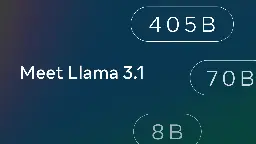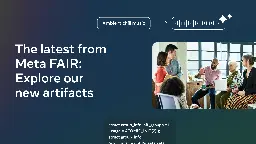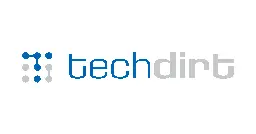So they just... f*ck off and die.
Nicht alle fossile Kraftwerke laufen mit Dampf.
Die kochen nicht mit Wasser?
Problem ist, dass die fossilen Kraftwerke immer noch existieren müssen. Wenn du zu manchen Zeiten kaum erneuerbare Energie hast, dann muss die Kapazität da sein, um den Bedarf anders zu decken.
Das heißt, dass du zu den Kosten für eine kW/h erneuerbarem Strom noch die Kosten für die ganze fossile Infrastruktur addieren musst, weil die Kraftwerke immer noch gebaut und gewartet werden müssen.
CO₂-mäßig hat man auch ein Problem. Die fossile Stromerzeugung funktioniert über Dampf. Man muss also erst gewaltige Mengen Wasser zum Kochen bringen, bevor man die Turbinen anschmeißen kann. Praktisch muss man Wasser am Köcheln halten, auch wenn die Erneuerbaren auf dem Papier gut liefern. Die Reduzierung des CO₂-Ausstoßes ist also viel kleiner, als es der Anteil der Erneuerbaren vermuten ließe.
Hmm. It was a big issue at the time. In truth, I'm really not sure how it works in France. Anyway, the big fight going on is really about minimal previews. Unfortunately, there is no disinterested reporting on the issue. The media is very much profit-maximizing.
The recitals aren't part of the law, but should only guide the interpretation. Also, this is a directive. That means it directs the member states to make law, but has no direct effect, as such.
My brother in Lemmy, this is what stopping Big Tech looks like.
Europe made laws that say that Google and others need to pay if they want to link to EU publishers. Well, maybe the price they are asking is not worth it.
You're right about the firewall energy, but that's simply how these laws work. The point of copyright, as well as age verification and other such laws, is to control who may access certain information.
Because that's one key feature in the "2019 European directive adopted into French law". It's also what the Google fine was about.
Also, X isn't really suitable for copy/pasting entire articles, like is done on lemmy. So that's probably not it.
They’ll play whack a mole for decades, just like they have been for P2P file sharing.
Some differences to that, though.
-
Downloaders can be prosecuted. That raises the question of what happens to kids or their parents who use non-compliant sites.
-
Blocked servers are inaccessible to adults, too, which raises freedom of information issues. These servers don't contain illegal information, after all.
-
Large scale piracy is illegal pretty much everywhere, meaning that the industry can go after the operators and get the servers offline. Not so here.
You think people should pay X to link to tweets? Or generally for quotes?
Ok. Smaller platforms like this here lemmy server don't do anything because it's expensive, or they are ethically opposed. They have no business in Australia and fines can't be collected. Australian kids (and adults who want to be anonymous, or don't like the government-mandated changes) flock to these platforms.
What now?
More like: They want to sell the cake and be paid when you recommend it to others.
Mind that news media don't pay when they link to social media, quote people, or even report what other media has reported. The real question is, if this law has any beneficial effect for society. I don't see how.
Oh, he's saying that snippet view lets us have sites like lemmy. I didn't get how cracking down on that would help lemmy.
It should only show the title and the link imo.
That's infringement in Europe, which makes it effectively a link tax.
Huh? How you mean?
It'll be more than a question. But again, how will Australia enforce that? Even if Australia provided a free API for age checks, it would still be a hassle to implement it. Are eg Fediverse devs going to do that?
Australian law enforcement can seize servers that are physically in Australia. It can also cut off cash flow for any business with paying customers in Australia. And all the rest? Even aside from free VPNs, there is a lot of internet that they can't touch.
They can lean on the likes of Youtube or Facebook to steer people in a more government approved direction. But as soon as people become annoyed or bored, they just go elsewhere beyond government control. If ID requirements are onerous for ordinary people, they will avoid compliant sites from the start.
The government could make Australian ISPs use a blacklist or a whitelist. Serious enforcement is possible, but not without going full totalitarian.
Das macht keinen Unterschied.
Im Prinzip ist es so, dass es persönliche Daten bleiben, wenn die Verbindung zur Person wieder hergestellt werden kann. Aber hier ist das so, weil die kompletten Daten im Archiv vorhanden sind. Der korrekt anonymisierte Text soll verschwinden. Das ist eigentlich ein Fall fürs Urheberrecht, aber die Nutzungsrechte sind abgetreten. Das jetzt so hintenrum mit DSGVO zu versuchen halte ich für Rechtsmissbrauch.
Man könnte sich beschweren, dass Reddit nicht genug unternimmt, um die persönlichen Daten aus solchen Archiven zu löschen. Reddit ist verpflichtet, zumutbare Anstrengungen zu machen.
Ok, and how will it be enforced at all?
Hmm. Man könnte anführen, dass die Anonymisierung nicht funktioniert, weil diese Archive existieren. Ich habe aber Zweifel, ob das Erfolg hat.
Unddit und Co sind natürlich nach hiesigen Maßstäben praktisch schwerkriminell.
Die DGVO sagt sogar ausdrücklich, dass eine Online-Kennung eine Person identifizierbar macht. Das muss nicht weiter auflösbar sein. Für Lemmy ist das natürlich ein Problem, hat aber nichts dem Thema zu tun.
Bei dynamischen IP-Adressen ist es komplizierter. Der Zweck einer Vorratsdatenspeicherung ist die Zuordnung der IP zu einer Person. Das heißt, ohne Vorratsspeicherung hätte man eher kein Problem beim Speichern solcher IPs.
Ja, aber nicht ganz. Die Plattform muss das so machen, um den Safe-Harbor-Status zu behalten. Wenn eine Plattform einer DMCA-Notice nicht nachkommt, dann ist sie für die angebliche Urheberrechtsverletzung verantwortlich/haftbar. Aber eine Plattform darf das. Praktisch ist eine Einzelfallprüfung natürlich unmöglich, sodass keine andere Wahl besteht, als das automatisiert durchzuwinken.
Aber wenn/falls die merken, dass missbräuchliche DMCAs geschickt werden, musst du damit rechnen, dass die deswegen was machen. Denn sonst "könnt ja jeder kommen", wie's so schön heißt.
A collaborative team of researchers analyzed the information-seeking styles of more than 480,000 people from 50 countries and found that gender and education inequality track different types of knowledge exploration. Their findings suggest potential cultural drivers of curiosity and learning.

Das Landgericht Hamburg weist die Klage eines Fotografen gegen die Verwendung seines Bildes zu KI-Trainingszwecken ab. Es ist die erste Entscheidung in einem solchen Rechtsstreit in Deutschland - weitere Prozesse dürften folgen.

>Die Zivilrichter in Hamburg ließen sich jedoch nicht von dem Argument des Fotografen überzeugen. Kneschke habe keine Beweise für eine gewisse Einflussnahme eines kommerziellen KI-Unternehmens auf LAION vorgelegt, hieß es in ihrer Urteilsbegründung. Damit sei es ihm nicht gelungen, einen Gegenbeweis zur Erlaubnis nach Paragraph 60d UrhG vorzulegen. Damit musste sich das Gericht nicht mehr mit der weiteren Schranke im Urhebergesetz beschäftigen. > >Dennoch teilte die Kamme ihre Auffassung mit: ob und unter welchen Voraussetzungen ein solcher Vorbehalt als „maschinenlesbar“ bewertet werden kann, sei von der technischen Entwicklung zum jeweiligen Nutzungszeitpunkt zu beurteilen. Das Gericht sah einen Wertungswiderspruch darin, den Anbietern von KI-Modellen einerseits über die Schranke des Text und Data-Mining die Entwicklung immer leistungsfähigerer Modelle zu ermöglichen, ihnen aber andererseits zur Prüfung etwaiger Vorbehalte nicht auch die Anwendung schon bestehender KI-Modelle abzuverlangen. > >[...] >Aufgrund der großen Bedeutung des Falls für die gesamte Kreativbranche ist eine Berufung zum Hanseatischen Oberlandesgericht sehr wahrscheinlich.
>We can only expect these trends to continue to worsen, and many works to be lost well before they enter the public domain. > >We are on the eve of a revolution in preservation, but “the lost cannot be recovered.” We have a critical window of about 5-10 years during which it’s still fairly expensive to operate a shadow library and create many mirrors around the world, and during which access has not been completely shut down yet. > >If we can bridge this window, then we’ll indeed have preserved humanity’s knowledge and culture in perpetuity. We should not let this time go to waste. We should not let this critical window close on us. > >Let’s go. > >- Anna and the team
This was published in November 2023, but may be of general interest now, because of current events.
Damian, 17 Jahre, legt sich mit Internetanbietern und Unterhaltungsindustrie an. Er hat die geheime Liste der Websites veröffentlicht, die nach Absprache von Unternehmen und Verbänden in Deutschland gesperrt werden.

Am LG Hamburg wurde der erste Fall einer Datennutzung für KI verhandelt. Mit Spannung wird Ende September das Urteil erwartet. Landet der Fall beim EuGH?

Meta veröffentlicht das bisher größte Llama-Sprachmodell 405B mit 405 Milliarden Parametern. Außerdem wird die gesamte Llama-3-Familie auf Version 3.1 aktualisiert.

Bei der Entwicklung von Open-Source-KI-Software werden die Trainingsdatensätze oft nicht öffentlich preisgegeben. Der Grund: Es bestehen zu viele rechtliche Unsicherheiten, ob Datensätze, die auch für das Training von KI-Modellen nutzbar sind, unter die Ausnahme zum Text- und Data-Mining im Urheberr...

>Was hier am Ende des Rechtsstreits entschieden wird, wird auch Auswirkungen auf die Arbeit von Wikimedia haben, gerade was unsere Arbeit in der Softwareabteilung mit Open-Source-Communitys betrifft.
Galambosianism is an early precursor to libertarian philosophy promoted by an aerospace engineer named Andrew J. Galambos (1924-1997) during the 1960s. He gave a series of for-pay classes starting with "V-50" ("The Theory of Volition"). Unlike other precursors to libertarianism (such as the ideas o...
Is it even for real?
Meta FAIR is releasing several new research artifacts. Our hope is that the research community can use them to innovate, explore, and discover new ways to apply AI at scale.

Long-running nonprofit Common Crawl has been a boon to researchers for years. But now its role in AI training data has triggered backlash from publishers.

A year ago, Walled Culture wrote about an extremely important case that was being considered by the Court of Justice of the European Union (CJEU), the EU’s top court. The central question was wheth…

>The key problem is that copyright infringement by a private individual is regarded by the court as something so serious that it negates the right to privacy. It’s a sign of the twisted values that copyright has succeeded on imposing on many legal systems. It equates the mere copying of a digital file with serious crimes that merit a prison sentence, an evident absurdity.
>This is a good example of how copyright’s continuing obsession with ownership and control of digital material is warping the entire legal system in the EU. What was supposed to be simply a fair way of rewarding creators has resulted in a monstrous system of routine government surveillance carried out on hundreds of millions of innocent people just in case they copy a digital file.
cross-posted from: https://lemmy.world/post/16327419
> cross-posted from: https://lemmy.world/post/16324188 > > > The Mozilla Builders Accelerator funds and supports impactful projects that are vital to the open source AI ecosystem. Selected projects will receive up to $100,000 in funding and engage in a focused 12-week program. > > > > Applications are now open! > > > > June 3rd, 2024: Applications Open > > July 8th, 2024: Early Application Deadline > > August 1st, 2024: Final Application Deadline > > September 12th, 2024: Accelerator Kick Off > > December 5th, 2024: Demo Day
cross-posted from: https://lemmy.world/post/16324188
> The Mozilla Builders Accelerator funds and supports impactful projects that are vital to the open source AI ecosystem. Selected projects will receive up to $100,000 in funding and engage in a focused 12-week program. > > Applications are now open! > > June 3rd, 2024: Applications Open > July 8th, 2024: Early Application Deadline > August 1st, 2024: Final Application Deadline > September 12th, 2024: Accelerator Kick Off > December 5th, 2024: Demo Day
Together with AI Sweden, Fraunhofer IAIS gains 8.8 million hours of computational capacity on the new high-performance computer MareNostrum 5 at the Barcelona Supercomputing Center: The goal of the EuroLingua-GPT project is to train large multilingual open-source language models.

The contingent approved via a EuroHPC “Extreme Scale Access” comprises 8.8 million GPU hours on H100 chips and has been available since May.
With the new computing capacities, small models in the range of 7 to 34 billion parameters and large models with up to 180 billion parameters can be trained from scratch.
The new EuroLingua models are based on a training dataset consisting of 45 European languages, dialects and codes, including the 24 official European languages. This gives a significant weight to European languages and values – multilingual large language models are still rare. Training will start at the end of May 2024 and the first joint models are expected to be published in the coming months.
Project leader Dr. Nicolas Flores-Herr, team leader Conversational AI at Fraunhofer IAIS says: “The goal of our collaboration with AI Sweden is to train a family of large language models from scratch that will be published open source.”



